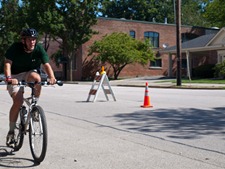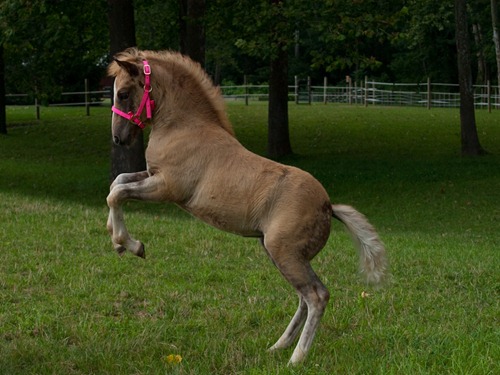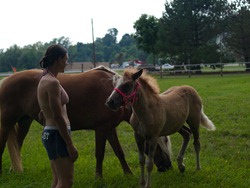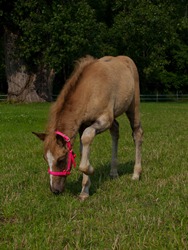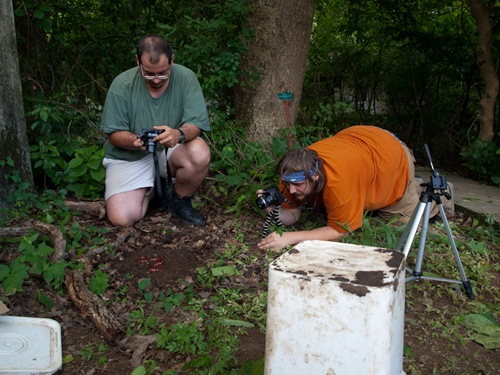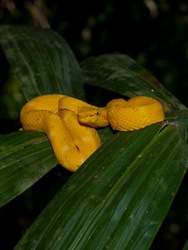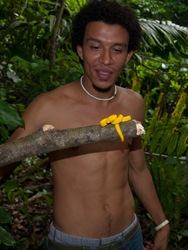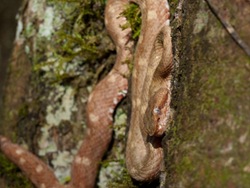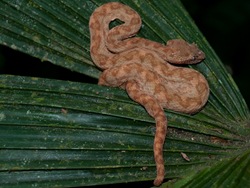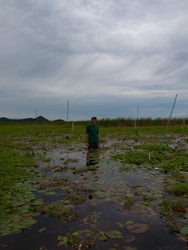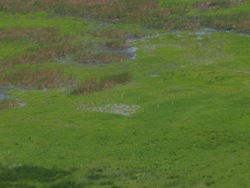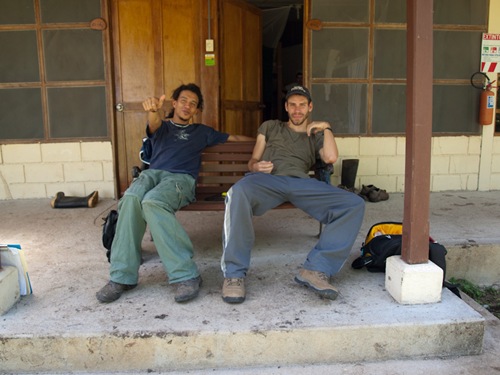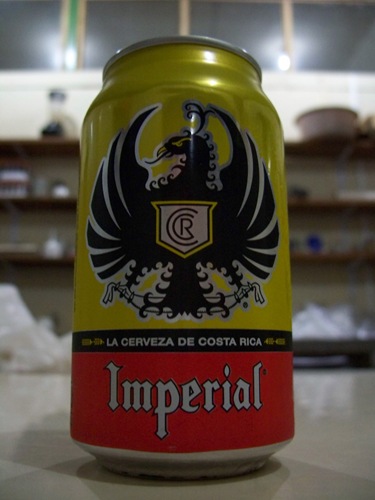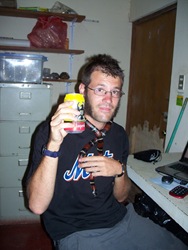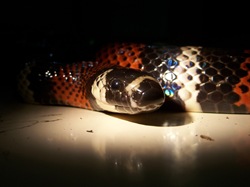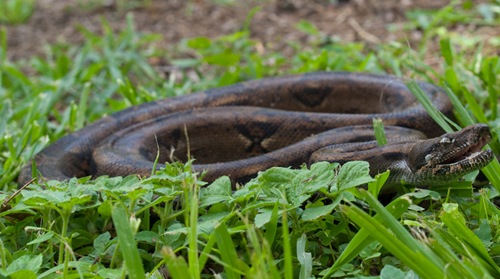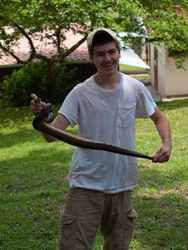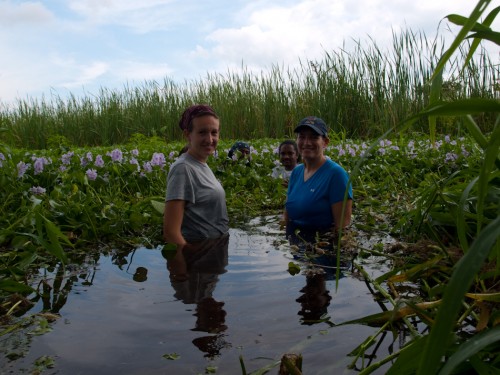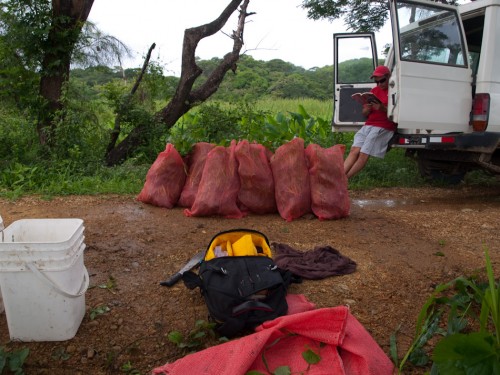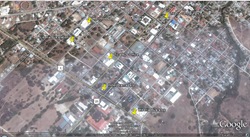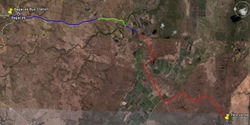This weekend, Pat, Allison and I participated in the Kayak/Canoe, Run and Bike triathlon set up, in part, by Kent Parks and Recreation. Although we never determined what out time was, the event was exciting and fun. Pat and Allison canoed the white water route (3.5 mi), then Allison ran (2.5 mi), and I finished with the bike (10 mi). Daren was also there in his potato of a kayak.
Tag Archives: People
Meet Coral
Coral, my father’s new haflinger, was born in late May and I was able to see her for the first time last weekend. She’s excitable, curious and very pretty. Additionally, she likes here chest scratched – her eyes nearly roll back if you scratch hard enough.
Behind the scenes
Most of my herp pictures weren’t taken in the field proper. The animals were brought back to the lab, placed near the lab and photographed in an environment that was a bit more comfortable and tolerable for the photographer. In addition to photographing the individuals, measurements such as length and weight were taken in a quick and dirty effort to provide some longer-term monitoring of these species. Below, Mahmood (left) and Vinny (right – a fellow IRES student that arrived 1 July… the day I took to recover from my birthday) photograph a Micrurus.
Take that Paul
In Cahuita National Park in Limon, we discovered three eyelash pitvipers in about a 500 m stretch. Boa had invited me to Limon (his provence) to stay with his family one night, and then at a hostel in Puerto Viejo the next. Meanwhile, we stopped at Cahuita, Boa’s former and potentially future place of employment, to take a hike through the gorgeous park and look for once final poisonous snake that I had never seen. I was introduced to two of Boa’s friends and a puppy named Feliz while there and promised I would post the pictures of the vipers when I returned home for Boa and to rub the finds in Paul’s face, since he went home without seeing one of these beautiful snakes.
Two new views
Tico friends
Cheers to Paul
Paul leaves Palo Verde today after assisting in Mahmood’s amphibian survey for about a month. He’s an intelligent, hardworking Sophomore from Kansas University who shows real potential as a future herpetologist and maybe even professional soccer player. His passion for herps is beyond anyone I’ve met, and he enjoys sharing that passion with fellow amateur herpetologists as well as the curious group members and tourists that visit Palo Verde. Best of luck, Paul. Keep it up.
Paul’s boa
Eichhornia collection
Yesterday, I had the greatly appreciated help of several individuals that came along with the Tropical Biology OTS course. Pictured in the foreground are Abbie and Amanda, and in the background, Justin and Stevland. Not pictured is Mo Donnelly.
They fearlessly helped collect living Eichhornia at the crocodile-infested waters at the Catalina sector wetland for placement in competition enclosures in Palo Verde. The bags full of hyacinth are shown in the other picture.
My new watch
Today, I bought a bus ticket to Nicaragua and a new watch; two things that seem completely simple and unadventurous, but to a lonely foreigner who knows little Spanish, it was certainly a new and exciting experience.
Yesterday, while planning a trip to Nicaragua for 3 days to reset my 90-d visa in Costa Rica, I discovered that the bus ticket I needed to purchase could only be bought in person – not via Internet, not via phone. This doesn’t seem like a big deal until you realize that the station I am in is 25, dirt road kilometers from the highway. Although the station isn’t the most remote station on the planet, 25-km + 1, sometimes 2, cars = difficulty. Luckily, a group of park rangers were heading out to the highway at 7 am and were willing to stop and pick me up. They were unsure when they would be returning though, so the ride back began to worry me.
At 7 am sharp this morning, Daniel stopped his truck outside the OET field station and I hopped in. I immediately noticed the poor shape the vehicle was in, and I think the vehicle picked up on that thought because 1.5 km past the station, it broke down. Another park ranger was coming along in a different car, so we piled in that car and headed out. I was dropped off at a bus stop and was picked up by a bus headed to Liberia within 1 min. No hitches on the way there…
In Liberia, I had Costa Rican directions to the bus company’s office (Tica Bus). I qualify ‘directions’ because here, there are limited street signs and names, so directions are usually given with a city, a landmark, and the number of meters away from the landmark along with it’s compass direction. For example, the Tica Bus office directions are as follows:
In Liberia, Hotel Bramadero; 200 m Norte; 100 m Este; Edificia azul
It seems easy, but learning to interpret that can be difficult. First of all, Hotel Bramadero might not be labeled as such. It could be a building people know about, but, if unlabeled, it would mean I would have to ask someone where the landmark is, which means they may give me another unlabeled landmark… Secondly, when I looked at the Google Earth map of Liberia, I noticed that the roads run NE to SW and NW to SE, so traveling ‘North’ or ‘East’ could mean many different directions.
|
|
Anyway, I took an educated guess after seeing that Hotel Bramadero was labeled well; Route 1, the Pan-American Highway, runs north-south. I arrived in the Liberia bus station, asked a ticket person where to buy Tica Bus tickets in broken Spanish, and received an answer from another patron. I walked to the Tica Bus office, bought a ticket (it took 1 hr for some reason… it was like I was buying the first ticket they ever sold), and then decided to by a much needed watch. I asked a clerk at Maxi Bodega if they sold ‘rojos’ and was met with much confusion. After pointing to my wrist and her watch several times and repeating ‘rojo’, she corrected me – ‘roloj’ is what I was looking for not the color red. She told me some directions to the central park and said that I could purchase one near there.
I entered El Rey, a store that seemed to sell too many things in too small of an area, kind of like Dollar Tree. After making a very exciting purchase and getting the watch set for me by the clerk (do they ever do that in the States? It seems like every time my dad gets a new watch I have to set it), I began to wonder about getting back. It was 10:30 according to my new watch, and the bus from Bagaces to Bagatzi was at 3 pm.
I took a crowded, standing room only, bus from Liberia to Bagaces… it was noon. I could wait three hours and potentially miss a bus that only gets me 15-km closer to Palo Verde, or start walking. So, I started walking. I had previously been in a similar situation with a friend, Daniela, and we hitchhiked back to Palo Verde from Bagaces. Since she’s Argentinean and obviously speaks Spanish, she did all the work. I decided that I’d give it a try.
It may have been my bad hair cut, but I didn’t get anyone to stop in nearly 10 km. It was my first experience hitchhiking on my own and I found it to be quite disheartening when a vehicle whizzed by on the dirt road, shooting up dust, particularly with the 1 o’clock Costa Rican sun beating down on me and the overall scarcity of cars. They all had good reasons, right? Eventually though, a truck that was apparently transporting sand stopped and allowed me to hop in the bed. There I met a laborer, whose name I can’t remember, and who held an umbrella over the two of us to block the sun while we sat in the sand.
It was a short trip until the truck stopped and honked the horn. The driver asked if I wanted to get off because he was turning, although I didn’t really understand a single word out of his mouth because (1) it was quickly-spoken Spanish and (2) he had what I think might be a regional accent.
I began walking again and quickly flagged down a German couple traveling with their toddler. They both warmly welcomed me but curiously mentioned that they were headed to Hacienda Tamarindo, but really meant Palo Verde. Although the husband spoke English well, conversing with them had the added difficulty of the use of the informal you ‘tu’ verb forms. In Costa Rica, that form is less often used than ‘usted’, the formal you, so the new verb forms threw me off.
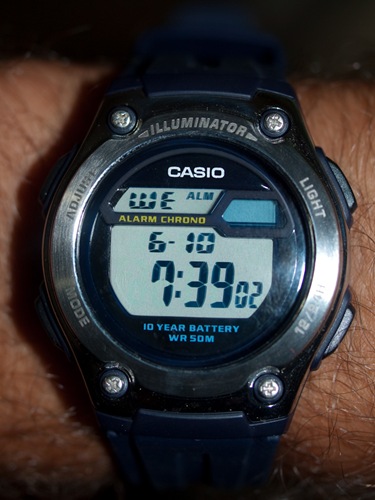
Thus ended my first real experience traveling alone in Costa Rica, with no real plans made ahead of time. I made it back though, and got a watch out of the deal.

![CanoeRunBikeTriathlonwithPatandAllis[17] CanoeRunBikeTriathlonwithPatandAllis[17]](https://www.montegraphia.com/wp-content/uploads/2009/08/CanoeRunBikeTriathlonwithPatandAllis17_thumb.jpg)
![CanoeRunBikeTriathlonwithPatandAllis[5] CanoeRunBikeTriathlonwithPatandAllis[5]](https://www.montegraphia.com/wp-content/uploads/2009/08/CanoeRunBikeTriathlonwithPatandAllis5_thumb.jpg)
![CanoeRunBikeTriathlonwithPatandAllis[9] CanoeRunBikeTriathlonwithPatandAllis[9]](https://www.montegraphia.com/wp-content/uploads/2009/08/CanoeRunBikeTriathlonwithPatandAllis9_thumb.jpg)
![CanoeRunBikeTriathlonwithPatandAllis[10] CanoeRunBikeTriathlonwithPatandAllis[10]](https://www.montegraphia.com/wp-content/uploads/2009/08/CanoeRunBikeTriathlonwithPatandAllis10_thumb.jpg)
![CanoeRunBikeTriathlonwithPatandAllis[4] CanoeRunBikeTriathlonwithPatandAllis[4]](https://www.montegraphia.com/wp-content/uploads/2009/08/CanoeRunBikeTriathlonwithPatandAllis4_thumb.jpg)
